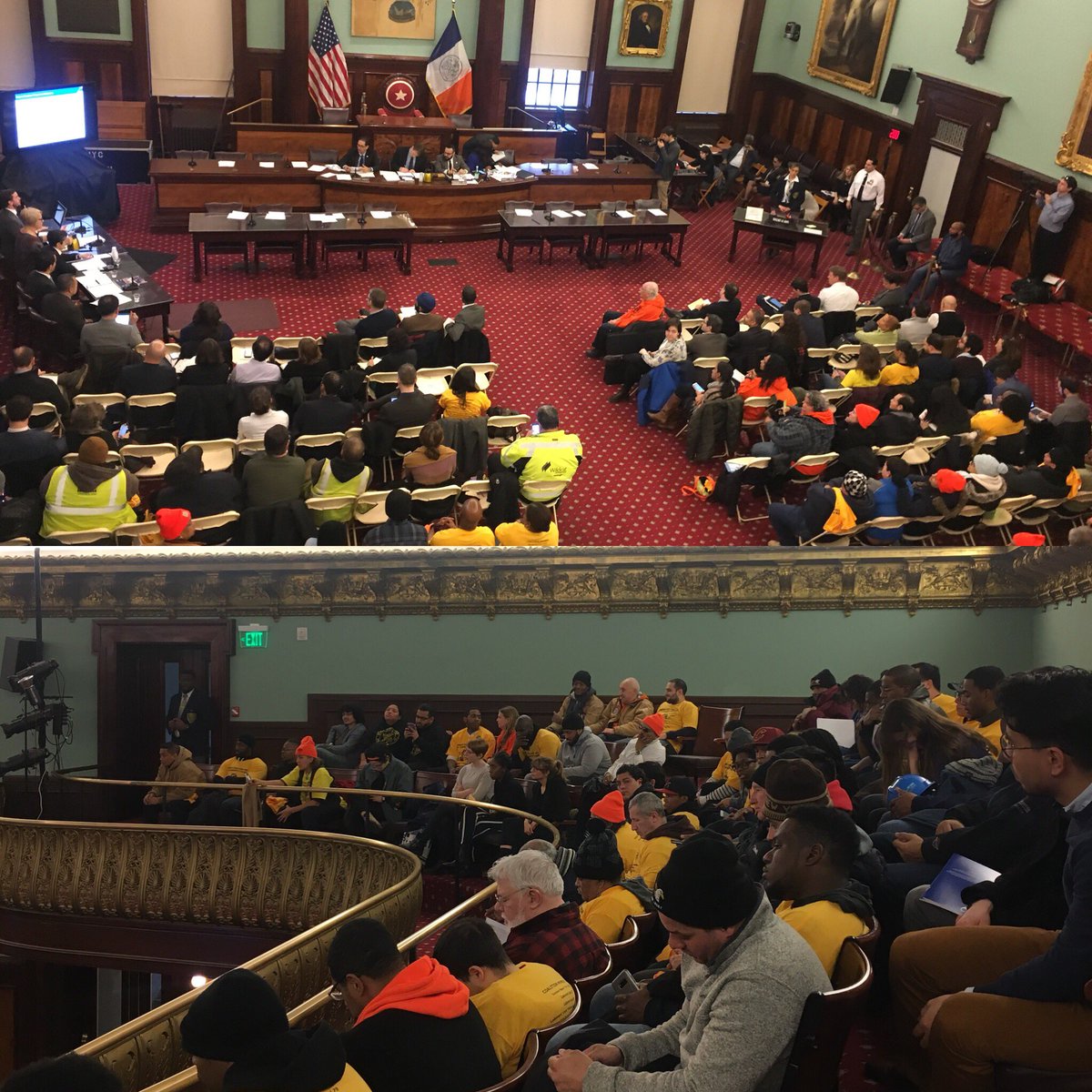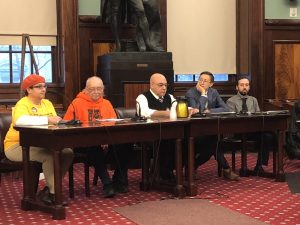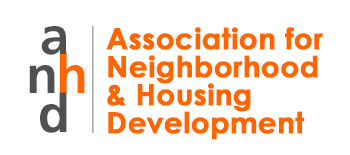It’s Up to the City Council to Make the Jerome Avenue Rezoning Right

Today the City Council held their public hearing on the Jerome Avenue rezoning, and despite the weather, community members came out in force to make their voices heard. The Bronx Coalition for a Community Vision held a press conference on the steps of City Hall to start the day, and coalition members and local residents gave testimony in the Council Chamber until late into the afternoon.
The Bronx Coalition has been clear from the beginning that the rezoning cannot move forward unless it corresponds to the local community’s vision and needs. At the press conference and in their testimony, speaker after speaker made their core demands explicit: reduce the scale of the rezoning and implement a No Net Loss Policy pilot program for Jerome. Both are aimed at preventing the displacement of current residents and ensuring that future housing remains affordable for the current community.

As it stands now, the City has projected that the rezoning will bring over 4,000 units to Jerome Avenue. The Coalition is demanding that the rezoning be reduced in scale to cut this number in half. As numerous speakers made clear, the larger the upzoning the greater the potential for it to permanently change the housing market around Jerome – and not for the better. Currently, the vast majority of what gets built in the community is subsidized, with a relatively high percentage of units serving households under 30% Area Median Income (AMI). But an upzoning of the scale currently proposed threatens to change the market so that developers are less likely to take subsidy – meaning more market rate units and fewer affordable ones as time goes on. Reducing the scale of the rezoning would help reduce this risk, ensuring that a greater share of the new units that are built continue to be built with subsidy and therefore aimed at lower income families, the way they are today.
A No Net Loss Policy for the neighborhoods around Jerome would provide an additional level of protection against displacement by ensuring that the community does not lose more affordable housing than it gains following the rezoning. While the City has committed to creating affordable units through Mandatory Inclusionary Housing (MIH) and continued subsidy, it must ensure that even more affordable units leaving regulations or forgoing subsidies as the market changes do not offset these. A No Net Loss program would prevent this – by tracking the creation and loss of affordable units by income level over time, and creating a mechanism to hold the City accountable for both the positive and negative sides of the rezoning results.
These are not abstract concepts; these are actions that will effect the lives of real people in the Bronx, as was made clear by countless residents standing up to tell their stories and asking, “If I have to leave the Bronx, where am I going to go?”
The City Council has the power to say no to this rezoning, or to adapt it to better meet the community’s demands. Previous rezonings can be used as a precedent. The scale of both the East New York and East Harlem rezonings were reduced by the City Council – in the case of East Harlem by close to 25%. As part of the East New York rezoning, the City agreed to create a taskforce to explore basement legalization, while in East Harlem the City agreed to include the neighborhood in its pilot “Partners in Preservation” initiative. There is ample precedent for enacting the types of demands that the Bronx Coalition is asking for and the Council must use its power to make them real. As Councilmember Vanessa Gibson said at the hearing, “This is about the future of the Bronx.” She’s right and the Council has a vital decision to make in what that future will ultimately look like. Or as a Bronx Coalition member put it, “We are counting on you for help, please don’t let us down.”
Christopher Walters, ANHD’s Rezoning Technical Assistance Coordinator
 ANHD 2016 Building the Community Development Movement
ANHD 2016 Building the Community Development Movement
